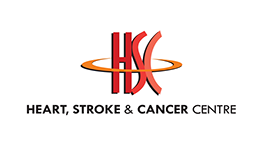Dr. Michael Lim's Articles

The fat that matters
All fats are not equal. It is the Omega-3 fatty acids that are most important to the heart. By Michael Lim
SHOULD I take Omega-3 ,6 and 9 fatty acid supplements for my heart?
All fat is made up of fatty acids, of which Omega-3, 6 and 9 are the most popular. They are all unsaturated fatty acids. Among them, there is only one Omega-3 fatty acid (alpha linolenic acid, or ALA) and one Omega-6 fatty acid (linoleic acid, or LA), which are considered essential fatty acids (EFAs). EFAs are necessary for our health but our body cannot produce them – we have to get them through our diet. All the other 3's and 6's, as well as all omega-9 fatty acids can be produced by our body.
Among Omega-3, 6 and 9, Omega-3 fatty acids are the most important. Omega-3 fatty acids refer to plant-derived ALA and marine-derived eicosapentaenoic acid (EPA) and docosahexaenoic acid (DHA). In our body, ALA gets metabolised into the two most beneficial fatty acids: EPA and DHA. Most of the touted benefits of consuming omega fish oils pertain to the benefits of Omega-3 fatty acids on the heart.
Population studies based on 30 years follow-up of men in the Chicago Western Electric Study showed that fish consumption was associated with the reduction of death from heart attacks. A study on women in the Nurses' Health Study also reported a similar association. Other studies, such as the US Physicians' Health Study reported that increased Omega-3 fatty acids consumption was associated with decreased risk of sudden death. However, there have also been population studies which have failed to show a correlation between fish consumption and heart disease. To address the conflicting data, well-designed studies called randomised controlled trials (RCT) were performed to help doctors determine whether Omega-3 fatty acids are useful in the prevention of heart disease. Overall, the data from RCTs show that dietary and supplementary Omega-3 fatty acids, including both plant-derived and marine-derived sources, were beneficial and were associated with reduction in both deaths from heart attacks and sudden death.
Several mechanisms have been suggested for the benefits on the heart. One of the most established effects of Omega 3 fatty acids from fish oils is its ability to lower the triglycerides in our blood. High carbohydrate intake and high sugar levels often result in high serum triglycerides. Highly elevated levels of triglycerides of more than 600mg/dl when combined with alcohol can be a lethal concoction. It can cause serious damage of the pancreas resulting in enzymes being released from the pancreas and digesting the tissues around it.
Elevated levels of triglycerides
Human studies have shown that the consumption of 4 grams per day of Omega-3 fatty acids for those with chronic elevation of triglycerides is associated with reduction of levels of triglycerides by 25 to 30 per cent. However, one has to be careful, as this is accompanied by an increase of bad cholesterol (LDL) of 5 to 10 per cent. For those who have significant elevation of their triglycerides after food, a smaller dose of Omega-3 fatty acid of less than 2 grams a day can produce substantial reduction. Omega-3 fatty acids also have been shown to reduce the clumping of platelets together, thereby thinning the blood.
There are some studies which have also shown that Omega-3 fatty acids may reduce the risk of sudden death by having a stabilising effect on heart muscle cells. This reduction in risk from sudden cardiac death may be due to the effect of Omega-3 fatty acids in preventing abnormal heart rhythms. Some smaller studies suggested that there might be less progression of heart artery blockage and a lower likelihood of vein graft occlusion in those with bypass surgery.
While the data seems to paint a positive picture for the consumption of Omega-3 fatty acids, it is important to be clear about the safety of the consumption of these supplements. The US Food and Drug Administration has ruled that intakes of up to 3 grams a day of marine-derived Omega-3 fatty acids are generally recognised as safe. Consumption of low doses of Omega-3 fatty supplements is generally safe but side effects do occur. Common side effects include a fishy aftertaste, abdominal upset, nausea and an elevation in LDL (bad cholesterol). The risk of bleeding is very low with such doses.
If you are thinking of rushing out to buy your Omega-3 fatty acids after reading this article, you should know that for those of you without heart disease, eating fish at least twice a week with oils in foods rich in ALA will usually provide enough Omega-3 fatty acid. However, children and pregnant and lactating women may have to be careful about excessive fish consumption as there may be an increased risk from mercury intoxication from contaminated fish. These groups are also at low risk for heart disease and therefore should not be overzealous in their fish consumption.
The current recommendation for those with pre-existing heart disease should be to increase their consumption of EPA and DHA to 1 gram per day. This can be obtained through the consumption of two fish meals per week, especially fatty fish, and the use of vegetable oils containing ALA, such as canola or soya bean oils. However, just eating any fish may not give you enough Omega-3. Fried fish from restaurants and frozen fried fish products are low in Omega-3 and high in trans-fatty acid, and should generally be avoided.
Lest you think more is better and start taking mega-doses of fish oil, such doses of fish oil may result in excessive bleeding in some individuals. If in doubt, ask your physician for advice.
There are some studies which have shown that Omega-3 fatty acids may reduce the risk of sudden death by having a stabilising effect on heart muscle cells. This reduction in risk from sudden cardiac death may be due to the effect of Omega-3 fatty acids in preventing abnormal heart rhythms.
24.12.2011
10.12.2011
03.12.2011
26.11.2011
19.11.2011
12.11.2011
06.08.2011
23.07.2011
Sleeping your way to better health
09.07.2011
25.06.2011
11.06.2011
28.05.2011
30.04.2011
Cholesterol - to treat or not to treat
02.04.2011
Listen to the rhythm of the heart
05.03.2011
05.02.2011
08.01.2011
Click to read more
Click to read more
Click to read more



